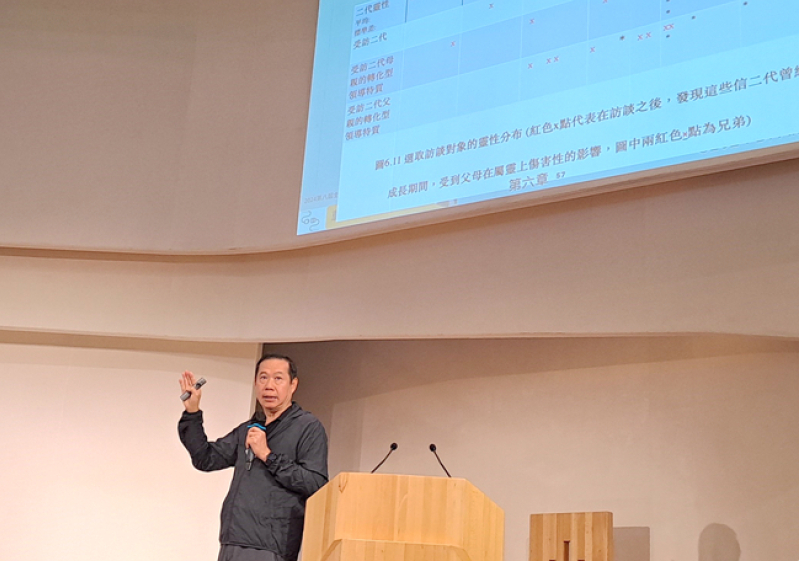
The church has long wrestled with the issue of losing its second-generation believers. Christian International Training Centre (基督教國際培訓中心) special lecture speaker Dr. Alan Yeung (杨启厚) recently published an important paper at the Eighth Hong Kong Pastoral Leadership Development Day. In his paper, he discussed how transformational leadership from parents plays a critical role in their children's spiritual maturity. Dr. Yeung emphasized that parents must have a humane and emotional side, becoming someone their children can trust and admire.
Paper Reveals Importance of Transformational Leadership in the Family
The Eighth Hong Kong Pastoral Leadership Development Day was themed “Reconnect”, the event attracted about 200 pastors, elders and lay leaders. Dr. Yeung delivered the second lecture titled “Spiritual Inheritance, Success or Fail is on Parental Leadership”. In this lecture, he presented his doctoral thesis at the Hong Kong Bethel Bible Seminary, “The Impact of Transformational Leadership Qualities on the Spiritual Maturity of Children”. He emphasized that family is the major factor influencing whether the children’s spirituality is mature or not, the church and Sunday School can only play a supporting role. “Believers can change churches, but children cannot change their parents.” That is why Chinese Christian parents need to be mature spiritually, and at the same time possess leadership qualities.
Characteristics of Transformational Leaders
Dr. Yeung points out that transformational leadership characteristics that parents should possess include: ideal influence, motivational inspiration, intellectual stimulation and individual attention. Parents should be humane and affectionate, people that their children can look up to. They can then encourage their children to think independently, look at problems from different perspectives, and freely express their views. When they experience hardships, they should be able to receive comfort from their parents.
Research Approach & Results
Dr. Yeung’s study used a combination of quantitative and qualitative methods. 200 questionnaires were sent out and twelve second-generation Christians were personally interviewed. The study revolved around two focuses: the respondents' faith after growing up; and who influenced their faith during the formative years. In the quantitative study, the percentage of parents with transformational leadership traits was 29.4% for mothers and 25.4% for fathers, indicating that 'neither is ideal'. In the qualitative study, respondents generally pointed out that their parents were the most important influence on their spiritual maturity.
Dr. Yang emphasized, “The church is not the most important place to influence the second generation of believers. When the parents do well, the church can guide them even better.” He also pointed out that some of the children interviewed said, “Even my parents are not as spiritually mature as I am, so how would they guide me?”
Importance of Parents with Transformational Leadership
Combining the quantitative and qualitative findings, about 60 to 70% of parents had a negative spiritual influence on their children during their formative years, corresponding with the 63.6% found in the quantitative. Therefore, it can be concluded that transformational leadership in parents is more important than their spiritual maturity.
Dr. Yeung concludes, “It's the heart that counts, not just teaching your children about the Bible, but also the need to understand the feelings of your children's hearts.”
Role of the Church
During the Q&A session, Dr. Yeung said that the church needs to reflect on whether it is providing new training for couples, emphasizing the importance of the family of origin. One respondent said, “I don't see the transformation of my parents, so I won't return to the church.”







